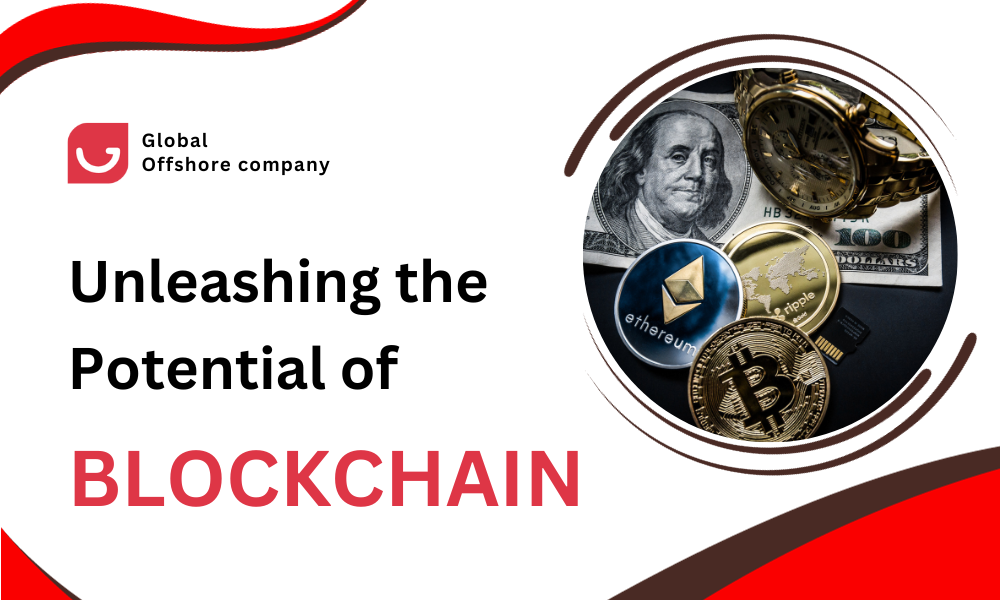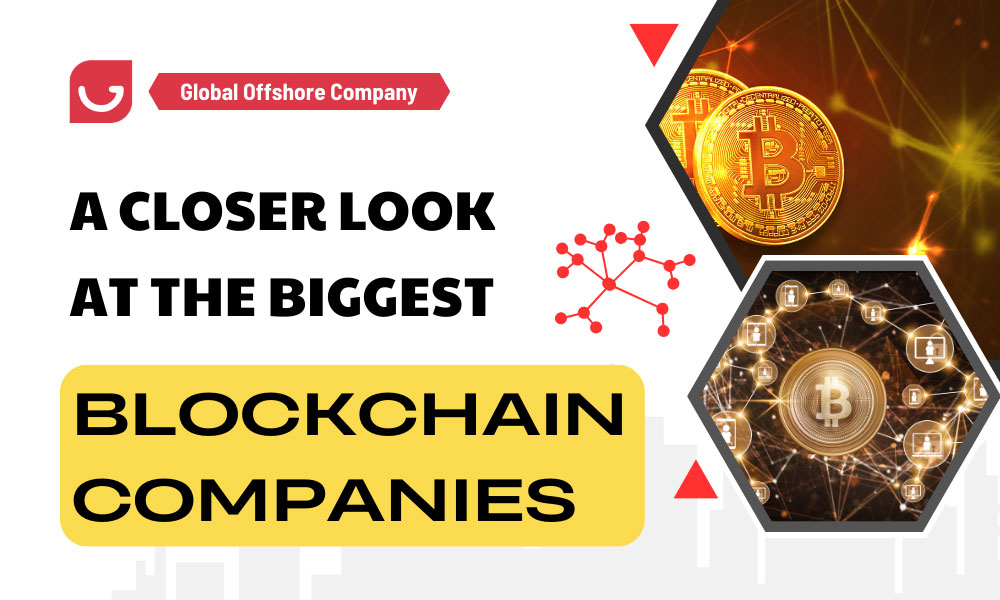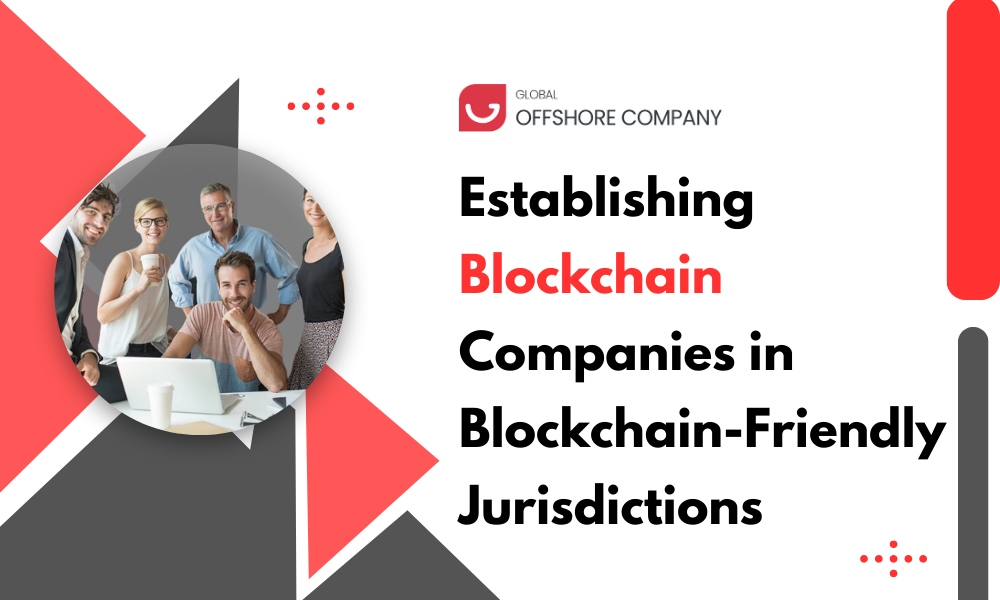Unleashing the Potential of Blockchain: A Guide for beginner
In a world driven by technological innovation, blockchain has emerged as a groundbreaking force with the potential to reshape industries, enhance security, and revolutionize the way we conduct transactions. This comprehensive guide will explore the unparalleled potential of blockchain technology, providing insights into its core principles, current and future applications, and the transformative impact it is poised to have on businesses and beyond.
Understanding Blockchain Technology
Blockchain is a distributed ledger technology that allows the secure and transparent recording of transactions. Its fundamental principles are:
1. Decentralization:
Unlike traditional centralized systems, blockchain operates on a decentralized network of computers, or nodes. This eliminates the need for a central authority, such as a bank or government, to validate transactions.
2. Transparency:
All transactions on a blockchain are recorded in a public ledger, which is accessible to anyone on the network. This transparency enhances trust and accountability.
3. Immutability:
Once a transaction is added to a blockchain, it is virtually impossible to alter or delete. This immutability adds a layer of security to the ledger.
4. Security:
Blockchain uses advanced cryptographic techniques to secure data. This security has applications in various sectors, such as finance, healthcare, and supply chain management.
Current Applications of Blockchain
- Cryptocurrencies: Blockchain technology gave birth to cryptocurrencies like Bitcoin and Ethereum. These digital currencies use blockchain as the underlying technology to enable secure and transparent peer-to-peer transactions.
- Supply Chain Management: Blockchain can track the movement of goods and ensure their authenticity throughout the supply chain. This is particularly valuable for verifying the origins of products and reducing fraud.
- Smart Contracts: Smart contracts are self-executing agreements with the terms of the contract directly written into code. Blockchain ensures the execution and enforcement of these contracts, eliminating the need for intermediaries.
- Voting Systems: Blockchain can be used for secure and tamper-proof voting systems. This has the potential to improve the integrity of elections and eliminate fraudulent practices.
- Identity Verification: Blockchain can provide a secure and unforgeable method for individuals to verify their identities. This has applications in banking, government, and online services.
- Cross-border Payments: Blockchain can streamline cross-border payments, reducing the time and cost associated with international transactions. It eliminates intermediaries and offers real-time settlement.
- Healthcare Data: Healthcare records can be stored on a blockchain, providing patients with control over their data and ensuring its security and privacy.

Industries Poised for Blockchain Disruption
- Financial Services: Blockchain's impact on the financial industry has already been significant. It promises faster and more secure transactions, lower fees, and the potential to disrupt traditional banking and payment systems.
- Real Estate: Blockchain can streamline property transactions, reducing fraud and the need for intermediaries. This can simplify and expedite real estate transactions.
- Healthcare: The healthcare sector stands to benefit from blockchain by securely managing patient records, tracking pharmaceuticals in the supply chain, and enabling telemedicine solutions.
- Energy and Utilities: Blockchain can enhance the management of energy grids, allowing for more efficient energy distribution and the trading of excess energy between users.
- Retail and E-commerce: Blockchain can improve supply chain transparency, allowing consumers to trace the origins of products and verify their authenticity.
- Government: Governments can employ blockchain for secure voting, land registry management, and the efficient distribution of social benefits.
- Entertainment and Media: Blockchain has the potential to revolutionize the distribution of content, ensuring fair compensation for artists and creators through transparent royalty payments.
Future Applications and the Potential of Blockchain
The potential of blockchain is still unfolding, with many innovative use cases on the horizon. Here are a few examples of how blockchain technology is likely to evolve in the future:
- Tokenization of Assets: Tokenization will allow real-world assets, such as real estate, art, and even intellectual property, to be represented as digital tokens on a blockchain, making them more accessible and tradable.
- Decentralized Finance (DeFi): DeFi platforms are poised to disrupt the traditional financial industry by offering decentralized lending, borrowing, and trading services, providing greater financial inclusion.
- Internet of Things (IoT): Blockchain can enhance the security and functionality of IoT devices by allowing secure data sharing and transparent tracking of device interactions.
- Blockchain in Space: With the growing interest in space exploration, blockchain technology can play a role in securing data from space missions and managing space assets.
- Decentralized Autonomous Organizations (DAOs): DAOs are organizations run by code and governed by smart contracts. They could revolutionize corporate structures, decision-making processes, and shareholder voting.
- Interoperability: The development of blockchain networks that can communicate and share data seamlessly is crucial for the broader adoption and utilization of blockchain technology.

Overcoming Challenges
As promising as blockchain technology is, it also faces several challenges, including:
- Scalability: Scalability issues must be addressed to accommodate the growing number of users and transactions on blockchain networks.
- Regulatory Compliance: Regulatory frameworks for blockchain and cryptocurrencies vary widely from country to country. Achieving global regulatory consensus remains a challenge.
- Energy Consumption: Some blockchain networks, particularly proof-of-work (PoW) based ones, are criticized for their energy consumption. Transitioning to more energy-efficient consensus mechanisms is vital.
- User Education: Widespread adoption requires educating users about blockchain technology and its benefits.
- Security: While blockchain is considered secure, vulnerabilities and risks, such as 51% attacks, smart contract bugs, and private key management, need to be continuously addressed.
The Revolutionary Journey Continues
Blockchain technology is at a pivotal stage in its evolution. Its potential to transform industries, enhance security, and revolutionize traditional systems is undeniable. While it faces challenges and uncertainties, the core principles of decentralization, transparency, immutability, and security make it a technology worth exploring and investing in.
As the world continues to embrace blockchain, it's essential for businesses, governments, and individuals to stay informed, participate in its development, and harness its potential to bring about transformative change. The journey of blockchain is far from over, and the future holds boundless opportunities for those who dare to explore its potential.
If you want to find out more about blockchain and more different topics. Follow our pages for more information.

Disclaimer: While Global Offshore Company (G.O.C) endeavors to provide timely and accurate information on this website, the content is intended for reference purposes only. The information presented in this article should not be considered a replacement for qualified legal advice. For personalized guidance on your specific circumstances, we encourage you to reach out to G.O.C's experienced consultants.









